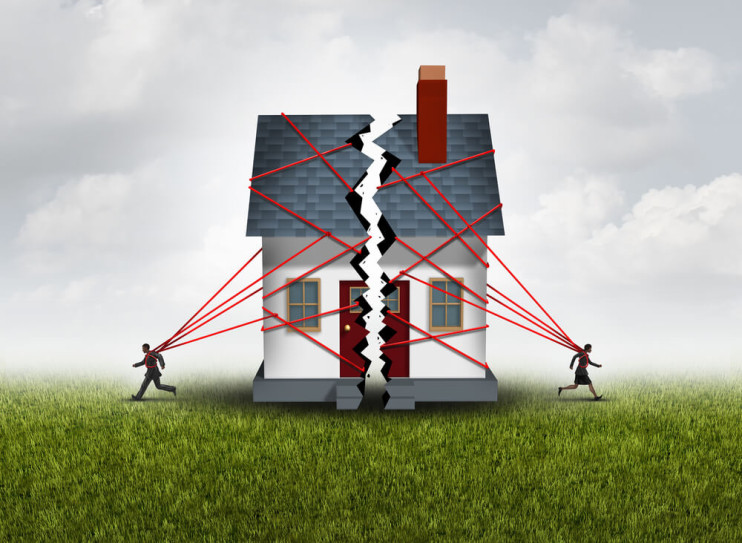
The divorce process can be an emotionally draining experience. In most cases, the process will be characterized by high emotions and lack of reason from the couple. This is why it is necessary to have an emotionally detached party to guide the process.
In case the couple involved has children, some of the issues that will have to be settled include child custody, support arrangements as well as visitation rights. Another emotive issue that must be handled during divorce relates to how the property will be divided between the two parties. When filing for divorce, both parties should learn about the different ways of dividing home equity.
Stay together in the house
While this is rare and could be termed as insanity, some couples have successfully pulled it off. The couple will live in the house and lead separate lives until such a time that the property sells. If the couple was on a mortgage, neither of them will be able to secure another mortgage. Once the home sells, the parties will pay off the outstanding loan and divide the remaining amount equally.
Refinance the mortgage
One spouse may move to another place and want off the deed. This means that the other spouse will be forced to refinance the mortgage. If the mortgage remains in both names and one party stops paying, the other person will be responsible for mortgage payments and related charges.
One party leaves while the other stays
The spouse that stays behind and pays the mortgage installments will get credit for the principal paid before the sale of the property. The party that moved out will get credit for half the amount raised after the sale. This is why parties in a divorce case are advised against leaving the marital home.
Rent it out
Both parties can opt to move out of the co-shared home and rent it out. This will give them enough time to generate revenue as they wait for property values to go up before selling the home. However, both parties will still be responsible for mortgage payments even when the tenant defaults.
Sell the home
If the mortgage is underwater, the couple can try out different ways of raising the value of the property. Although this is unlikely to bear any positive results, it would be important to talk to a Realtor to discuss the options that you can explore. If you are lucky, the property will sell at a price that will allow you to pay the outstanding amount on your mortgage.
Defer the sale
The couple can agree on a specific future date on which to sell the home. This is done in the hope that property values will go up. Although both parties will be on the deed, only one of them will stay in the co-shared property. If the party staying in the property defaults on mortgage payments, the other party will be responsible for the payments.
Short sale
The divorcing couple can also agree to allow the lender to sell the home at a loss. The effects of a short sale on credit rating will be less severe than those of a foreclosure.
Buying your partner out
Whenever possible, one of the best ways to avoid the complications of dividing home equity during divorce would be to buy your partner out. This means that any mortgage and equity will be transferred to you. You will then be responsible for mortgage payments and will own the equity.
At Sabra & Aspden, we’ve dealt with every possible scenario when it comes to divorce and home ownership. Talk to our team today to learn how best to navigate this very delicate situation.


